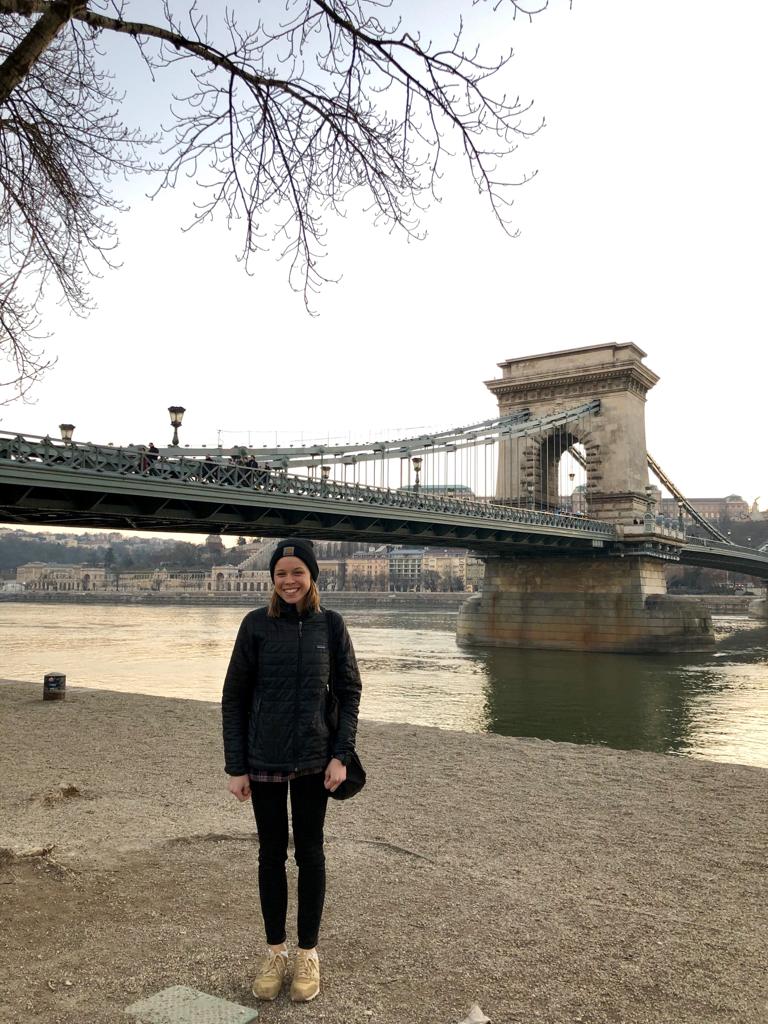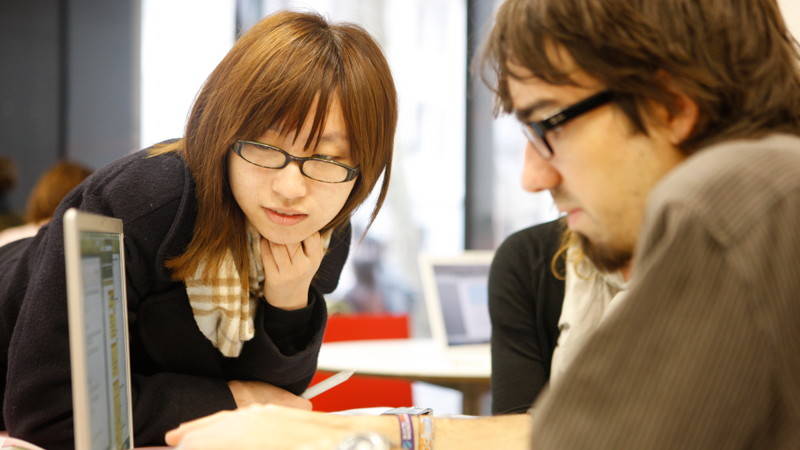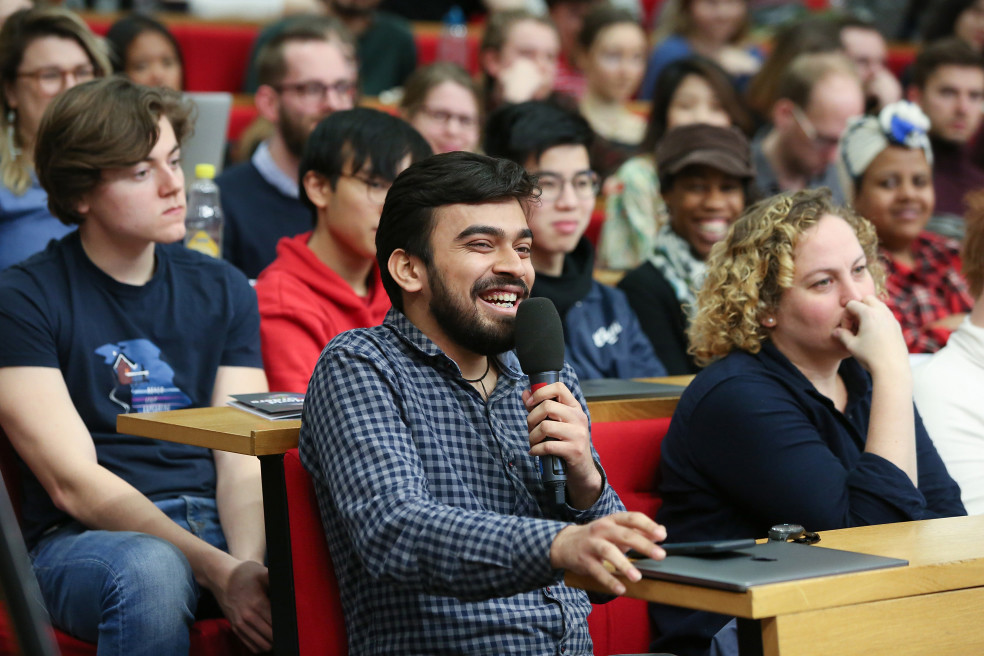For this week’s ID Weekly Spotlight, Student Media Ambassador Rachel Epstein talked to MSc Health and International Development student, Lauren Culbertson. Read about their chat here.

Lauren’s huge smile greets me even before the smell of fresh-brewed Americanos. We’re at Hej, a coffee shop in Bermondsey popular with yuppies, small-dog owners, and brunch-as-a-food-group types. It’s a joint where avocado toast comes a-plenty and long, laptop-free tables encourage mingling of the best kind.
Lauren fits in well here. She’s wearing a tee with a Patti Smith concert ad silkscreened across it—an Etsy purchase of £5, she tells me—and stockings with several rips and runs on one leg. “I think it’s trendy!” she retorts, when she notices me looking.
It’s common knowledge that a student should never write an essay starting with ‘since the beginning of time immortal,’ but Lauren’s interest in international development might actually go back that far. “For as long as I can remember,” she says, “I’ve had this deep curiosity about the subject.”
As an undergraduate, Lauren interned with several NGOs, which took her from the South Side of Chicago where she was studying, to South Africa working on monitoring and evaluation—now her focus at LSE.
Unlike the rose-coloured glasses worn by much of the NGO world, Lauren found herself frustrated in South Africa. The organisation she was working with put little emphasis on making sure the work that was being done was making a tangible impact and stated outcomes.
“It was interesting to me because I’m someone who tends to operate out of my heart and my feelings, but it really bothered my head. There was no structure and it felt like we were wasting resources.”
For Lauren, her South African experience also raised the question about what development work really is and who exactly benefits from on-the-ground activity. It’s an issue that comes up frequently in the department’s courses. Whether in conflict studies, economic reform, or emergency aid, the debate over action and results runs like a bloodline through the work.
In her situation, she said, “We were putting this label of development work on it but there was no system to say ‘ok these are the outcomes we want to see, this is how we want to see lives transformed’.”
It was that desire for tangible transformation that pushed Lauren to come to LSE.
“I was attracted by the hands-on nature of the course work.”
“The way I learn best is by doing. The opportunities to do consulting work, to do group projects, and do more than read and write papers was perfect for me.”
While monitoring and evaluation methods are her bread and butter, Lauren’s interest in health makes up the topical side of her degree. She’s part of the intimate group of around 30 students studying Health and International Development.
Sexual and mental health are her areas of choice. After she graduated, Lauren moved to New York to work for a charity focussed on the health and safety of sex trafficked survivors. Her experience as a crisis counselor also informed her interest, along with her research background on the intersection of access to water and sanitation and gender-based violence.
With dissertation proposal two dangerously simmering around the corner, Lauren plans to take her foundational research knowledge to create a fuller picture of the relationship between sanitation and gender-based violence.
“I want to see what’s being said in the field,” she tells me. “We have to start making these connections and develop some kind of toolkit that practitioners can use in the wash sector.”
Lauren’s penchant for looking to the future serves her well outside the International Development Department. She’s part of the interfaith leadership group at LSE, which for her has been extremely rewarding.
“I wanted to break out of the Christian bubble I was in when I lived in New York and learn from other students from different faith backgrounds. It’s been a really eye-opening and challenging experience to be in such a vulnerable environment with other students. I’ve loved learning about the theology of Hinduism and Sikhism and other religions that are so important in different parts of the world.”
It’s clear that Lauren is a globalist, with a passion to help others succeed. Shaped by international experience in a range of health areas, she’s determined to make a difference—and with her skill for monitoring, I’m sure those differences will certainly be recognised.
The views expressed in this post are those of the author and in no way reflect those of the International Development LSE blog or the London School of Economics and Political Science.





